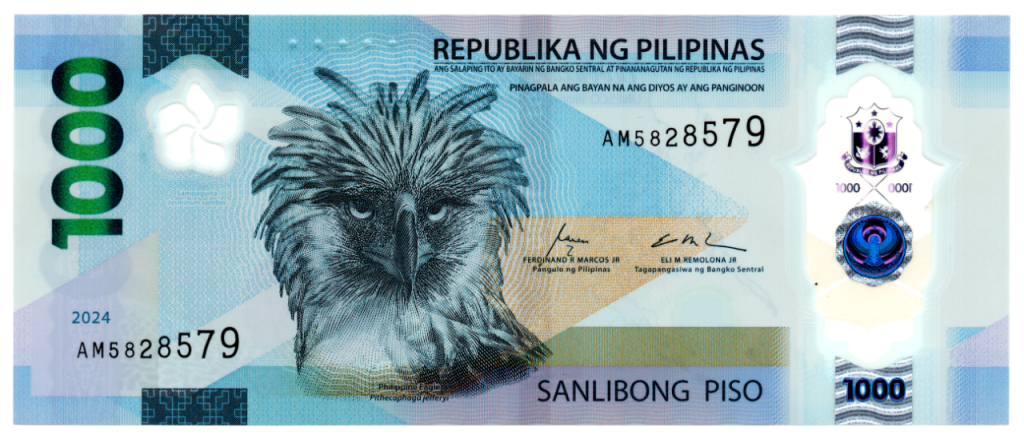The Power of Money: Neither Hero Nor Villain
By Randell Tiongson on June 1st, 2025
Money is a form of power. And like all forms of power, it can be used to serve or to harm, to heal or to destroy. It’s like fire—it can cook food or burn a house down. Money, in itself, is neutral. It only does what the one who possesses it wants it to do.
In my years of teaching personal finance and biblical stewardship, I’ve seen two common reactions to money—either people idolize it, or they demonize it. And both extremes miss the point.

Some people hate money, not because money has done anything wrong, but because they associate it with the wrongs committed by people who have it. We’ve seen corruption, greed, and exploitation—especially here in the Philippines, where abuse of wealth is a very real and painful part of our national history. So we blame money, when in fact, it is the hearts of people that are corrupt, not the pesos in their wallets.
What the Bible Really Says About Money
Let’s look at Ecclesiastes 10:19, which some versions translate as:
“A feast is made for laughter, and wine gladdens life, and money answers everything.” (ESV)
That last line—“money answers everything”—is often misused. But understanding it requires us to read it as the wisdom literature it is. The writer of Ecclesiastes (traditionally believed to be Solomon) is not making a theological declaration about money being the solution to all of life’s problems. He’s making an observational statement—a reflection on life under the sun. In practical, earthly matters, money really does answer a lot of things.
If you want to throw a party, money can pay for the food and the wine. If someone needs medicine, tuition, or shelter—money can meet those needs. That’s the context. The Hebrew word for “everything” (k?l) in this verse can also mean “all kinds of things” or “both” within a limited scope, not everything in the absolute sense. It’s not saying money is the ultimate answer—it’s saying money is a functional answer to material needs.
What It Means for Us Today
Here’s the takeaway for us: Money is not the enemy. Misplaced trust in money is.
Money doesn’t make you moral or immoral—it just amplifies who you already are. If your heart is surrendered to God, money becomes a tool for compassion, generosity, and justice. If your heart is driven by greed or fear, money becomes a weapon for manipulation, deception, or pride.
Let’s consider two examples from Scripture:
1. Money Used for Good: The Parable of the Good Samaritan
In Luke 10:25–37, Jesus tells a story about a man who was attacked and left for dead. Two religious leaders passed by and did nothing. But a Samaritan—an outsider, culturally despised—stopped, bandaged the man’s wounds, placed him on his animal, brought him to an inn, and paid for his care.
“And the next day he took out two denarii and gave them to the innkeeper, saying, ‘Take care of him, and whatever more you spend, I will repay you when I come back.’” (v. 35)
Notice: the Samaritan had compassion—but also the means to help. Money enabled him to do good. In our modern context, that could be you paying for someone’s medical bills, feeding a hungry family, or helping a student stay in school. In short: faith without works is dead—and helping others often costs money.
James puts it bluntly:
“If a brother or sister is poorly clothed and lacking in daily food, and one of you says to them, ‘Go in peace, be warmed and filled,’ without giving them the things needed for the body, what good is that?” (James 2:15–16, ESV)
For us Pinoys, we know this well. Every time a calamity hits—a typhoon, a fire, or a health crisis—our bayanihan spirit kicks in. And in those moments, money is one of the fastest ways to show mercy.
2. Money Used for Evil: The Bribery of the Guards
In Matthew 28:11–15, after Jesus rose from the dead, the guards told the chief priests what happened. The religious leaders, afraid of the truth, did this:
“And when they had assembled with the elders and taken counsel, they gave a sufficient sum of money to the soldiers and said, ‘Tell people, ‘His disciples came by night and stole him away while we were asleep.’” (vv. 12–13)
They used money to perpetuate a lie—one that tried to suppress the truth of the resurrection. That same money that could have fed the poor was used to manipulate and control.
The problem wasn’t the silver. It was the hearts of the men who gave it.

So What Does This Mean for Us, Mga Kapatid?
In the Philippines, we live in a nation where money is both a dream and a danger. We long for it—because many of us have experienced poverty. But we also fear it—because we’ve seen what it can do when abused.
So how should we view money biblically?
1. Understand Money’s Limits
Money can pay for medicine, but it can’t guarantee healing.
It can build a house, but it can’t make it a home.
It can fund a church building, but it can’t buy the Spirit’s presence.
Let’s stop blaming money for what it was never meant to do. And let’s stop expecting money to do what only God can.
2. Use Money as a Steward, Not an Owner
The biblical view is that we don’t own anything—we are stewards.
“The earth is the Lord’s and the fullness thereof.” (Psalm 24:1)
If we see ourselves as stewards, we’ll stop hoarding and start giving. We’ll stop being controlled by money and start controlling it for kingdom purposes.
3. Let God Form Your Heart Before He Fills Your Hands
Some of us are praying for breakthrough, promotion, or financial blessings. But if God gave us more money before shaping our character, it could destroy us. Money is a magnifier. It reveals who we really are.
So let God form your heart before He entrusts you with more in your hands.
Money is a Servant, Not a Savior
At the end of the day, money is not the villain. It’s also not the hero. It’s just a tool.
The question is: who’s holding it—and what’s in their heart?
As Christians, especially in a culture like ours where financial struggle and aspiration collide daily, let’s not blame money. Let’s redeem it.
Use it to bless. Use it to build. Use it to advance the kingdom.
But never use it to replace the God who gave it.
No one can serve two masters, for either he will hate the one and love the other, or he will be devoted to the one and despise the other. You cannot serve God and money. – Matthew 6:24, ESV

